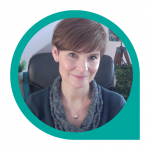Distressed not 'difficult'—supporting distressed behaviour in children
25 February 2025
10am – 12pm | Online/Zoom
Make sense of children's 'challenging' behaviour through the lens of distress and discover practical ways to support them.
This training is aimed at those working with children who work with children who display 'challenging' behaviour.

Ticket Prices
£40 members
£55 non-members
Key Learning
- Exploring our thoughts and beliefs about behaviour
- Identifying patterns of behaviour and how they meet a child's needs
- Understanding the interconnected brain, moving from co-regulation to self regulation
- Interpreting behaviours, and what this tells us about a child’s internal state
- Using the internal state and developmental stage of a child to inform our responses
How we view and respond to a child’s behaviour has changed over time. Traditional approaches, that are still being used today, are reactive and have many limitations. If we really want to minimise the reoccurrence of distressed behaviour and bring about long-term change for our children and young people, we need to understand what is going on in their bodies and brains. We also need to be aware of the impact of environmental factors surrounding the child and how we can stay connected when relationships are being pushed to the limit.
This session translates recent findings in neuroscience into practical approaches that help the adult to make sense of behaviour and respond in a considered way. It explores how we can be proactive, making small changes to daily routines that will equip children with the skills they need to meet the demands of everyday life.
Facilitators

Nicola McAllister is a trainer and consultant who specialises in Child Development and Behaviour. She has over 25 years’ experience working with some of our most vulnerable children and young people while providing training, consulting and coaching services to those adults who support them.
Nicola’s background is in Education. She has worked within mainstream settings as well as specialist provisions for children experiencing social, emotional, and behavioural needs. Her training and consultancy work has branched across several sectors including early years, fostering and adoption teams, community groups and supporting parents and carers at home.
Using neuroscience informed approaches, she supports adults to create environments that will soothe stress responses within the child, reconnect safe and secure relationships and develop self-regulation for long term success.
Have any questions?
Please get in touch and a member of the Children in Scotland events team will be happy to help.
Contact usChild Protection Lead
Top-up your child protection training. Multiple dates across the 2024-25 year
Learn more & book your place
